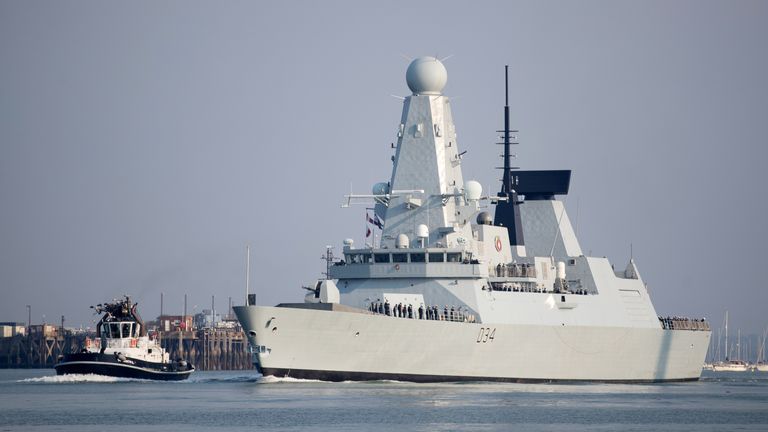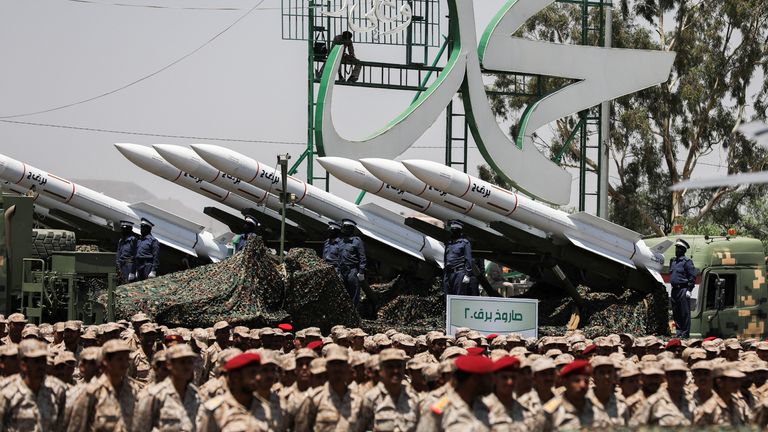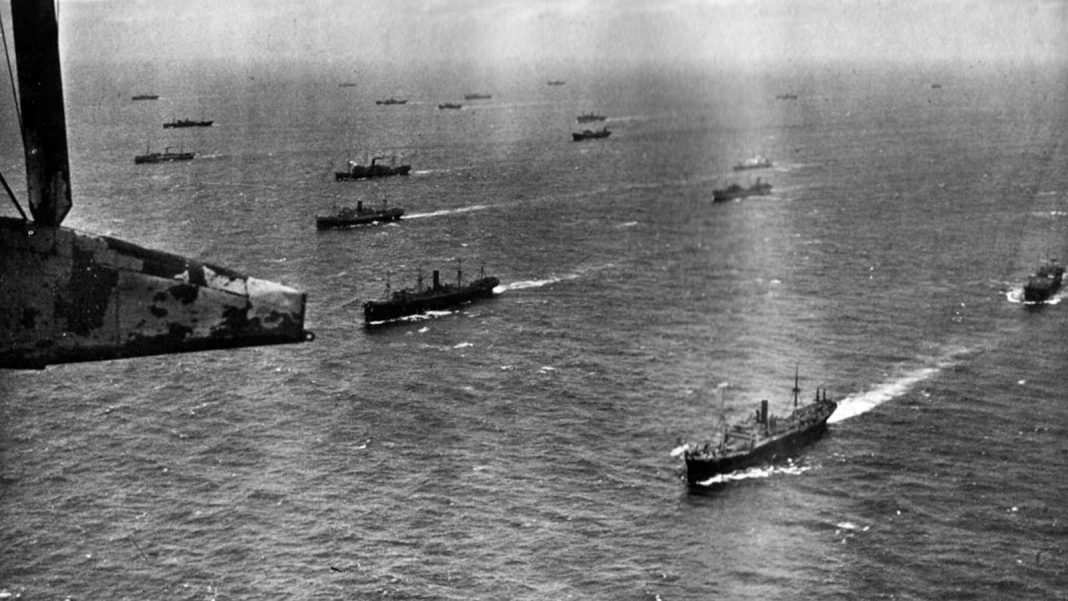The interventions by the UK’s armed forces in the Middle East this week have been compared to protecting Atlantic convoys in the Second World War and airstrikes against Islamic State.
Earlier this week in the Red Sea, crews on the Royal Navy’s HMS Diamond shot down seven drones launched by Iranian-backed Houthi fighters, the first time a UK vessel has had to defend itself in years, military analysts say.
Overnight, Britain’s armed forces were busy elsewhere in the region, striking Houthi targets inside Yemen in cooperation with the US and other coalition nations.
While it’s a significant action, two military analysts told Sky News this was a “pretty limited” intervention and that it was not clear if this would grow into a lengthy operation.
Follow latest: Footage shows moment RAF jet strikes targets in Yemen
‘Really quite striking’ for Royal Navy
Both military analysts who Sky News spoke to said they thought this was the first time a UK vessel has had to defend itself in decades.
“For the Royal Navy this is really quite striking,” says Professor Malcolm Chambers, deputy director-general of the Royal United Services Institute defence thinktank.
HMS Diamond is a Daring-Class Type 45 air defence destroyer which joined the fleet in 2011.
Please use Chrome browser for a more accessible video player
1:02
What happened in the Yemen airstrikes?
It launched several Sea Viper missiles in response to the drone attack, knocking them out of the air. One drone, however, continued to head towards the ship and crews shot it down using the vessel’s guns, military analyst Professor Michael Clarke told Sky News.
“HMS Diamond did exactly and precisely what it was designed to do,” he said.

The Royal Navy Type 45 destroyer HMS Diamond
Read more:
How British warship repelled Houthi attack
Who are the Houthis?
Attacks reminiscent of 1944 convoys
During the Second World War, Allied warships battled to protect crucial convoys sailing across the Atlantic from attacks by German submarines.
In recent weeks, merchant vessels in the Red Sea have come under attack from Houthi fighters, who say their assaults are aimed at Israel-linked ships in an effort to stop the Israeli offensive in Gaza.
Amid serious attacks and an enduring threat, some shipping companies have ordered their vessels not to enter the strait until the security situation improved, resulting in increased prices for customers.
An international operation has seen five warships patrolling the waters, shooting down drones and anti-ship ballistic missiles, a US Navy vice-admiral said.
According to Prof Clarke, in one incident HMS Diamond put out an alert to nearby merchant ships to increase speed to maximum.
The commercial ships, packed close together, headed on while the military ships turned to face the threat.
“We haven’t seen that since 1944, that was interesting,” he said.

Houthis parade missiles in Sanaa, Yemen
Yemen strikes: Is UK heading for protracted military operation?
Both military analysts said the airstrikes on Yemen overnight had been a limited intervention.
In recent years, the UK has been involved in a lengthy campaign of airstrikes against IS targets in the Middle East.
The terror group grew to occupy huge swathes of territory in Iraq and Syria but is now a fragment of its former size after military intervention from local groups, backed by Western aircraft.
Thursday’s strike on Yemen, while significant, is not yet on the same level, the analysts said.
“I guess there might be a concern that we would be drawn into a protracted tit-for-tat operation,” Prof Chambers said. “But so far it’s one strike, one day, involving four aircraft.”
Speaking about the Houthis’ military capabilities, he pointed out that they had “essentially won” in a conflict with Saudi Arabia despite air campaigns by Western-made jets.
Please use Chrome browser for a more accessible video player

1:54
Houthis vow ‘punishment’ for attacks
Prof Chambers also contrasted their motives with another group which had threatened international shipping: Somali pirates. But their motive to hijack ships was financial, he said.
“The motive for the Houthis’ attacks is not commercial, it’s geopolitical, and therefore the solution will have to be political.
“I don’t think these strikes are going to destroy Houthi ability to attack commercial vessels.”
Prof Clarke predicted more airstrikes by the UK and coalition forces over the next few days or weeks as the Houthis respond.







